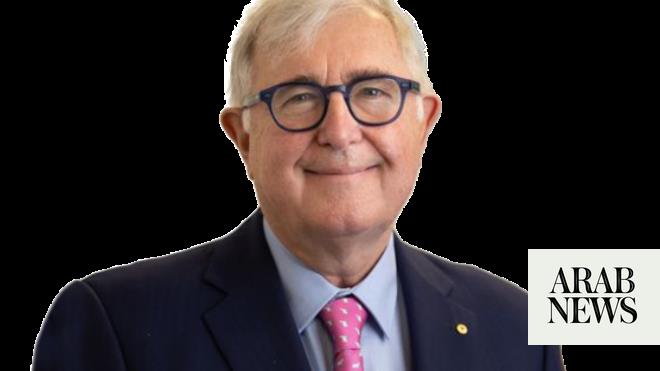
JEDDAH: Diversification of the economy is the cornerstone of Saudi Vision 2030, and it can only be made possible by adopting a multi-pronged strategy focussed on technological advancement.
The King Abdullah University of Science and Technology (KAUST) is playing a key role in achieving the goals set in Vision 2030. It has initiated several programs to promote innovative ideas in different fields of science.
The number of KAUST startups is on the rise and the university is partnering with global organizations to come up with innovative ideas and promote its products in the world.
The 10th KAUST Industry Advisory Board (KIAB) highlighted these points on Monday.
Vice President of Innovation and Economic Development Dr. Kevin Cullen described KAUST as the “deep-tech heart” of the Saudi economy.
“Probably for the first ten years the focus has been on collaborative research. The university has also produced a lot of intellectual property. I describe it as the deep-tech heart of the Saudi economy; we have world-class research, technology, startups, companies and we want that to act as a hub and a magnet to bring more companies, entrepreneurs, investors and technology developers to KAUST to help drive the innovation agenda forward in the Kingdom,” he told Arab News.
Saudi Vision 2030 is reflected heavily in this year’s theme, “A Decade of Innovation.”
“It’s a pivotal moment — we’re ten years in and there’s ten years to go. From KAUST’s formation until 2030, we are exactly half way,” he said. “(During) the first ten years of KAUST, we have achieved remarkable success as a research university and we are now recognized around the world for doing wonderful research.”
He added: “I see the second ten years as about finding ways of getting that research put to use, finding ways of getting the research from the laboratory into the economy, society and community to deliver benefits to the Kingdom, the region and the world.”
President of KAUST Dr. Tony Chan said that the Kingdom’s vision inspired him to join as president.
“I read Saudi Vision 2030 many times, in fact it was part of my decision to join as president. I think it’s a great opportunity for KAUST, it’s a great transformation of the Kingdom — and that goes without saying,” he told Arab News.
He highlighted that the part that relates to his organisation is diversifying the economy.
“There’s the Saudi Aramco business, the SABIC business; oil and chemicals, but now there’s sustainability, the circular carbon economy, and we are in the thick of that and in preparation for G20.
“And this will take time, I assume the circular carbon economy will be part of the G20, but we stand ready to that. We are lining with that, not because it’s a fashion. Saudi Arabia will host the G20 for only one year, but this thing will go on for a long time and we want to be there.”
KAUST is heavily involved with giga projects such as NEOM and the Red Sea Project.
“And we also see them as long term. KAUST’s Red Sea Farms is in discussion with both projects. In fact the director of the food sector at NEOM is one of our faculty, Mark Tester, and he is also very much involved in the Red Sea Project because they are very interested in him. The Red Sea Project has one of our faculty stars, Prof. Carlos Duarte, and he’s one of the world’s most renowned ecologists.”












